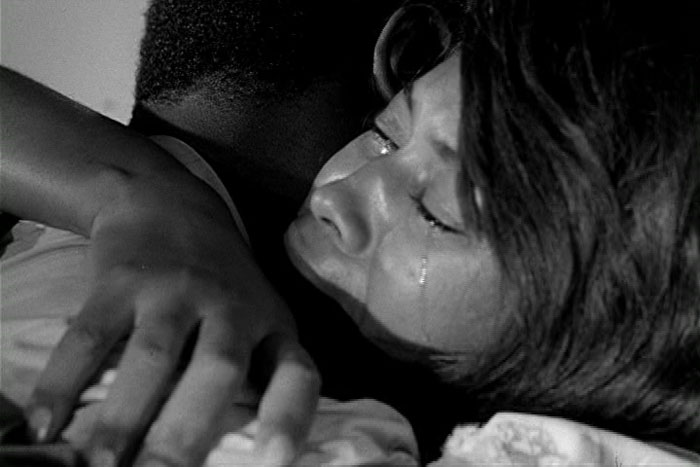
Directed by Michael Roemer
35 mm black-and-white film
95 minutes
DuArt Productions
Nothing But a Man is an extraordinary film that paints a vivid picture of the challenges faced by African Americans in the South of the early 1960s. Few motion pictures of the period better captured the everyday tyranny of Jim Crow segregation. Duff Anderson (Ivan Dixon) works with an all-black railroad crew, laying track in Alabama. One evening he attends a church service led by a black preacher (Stanley Greene). There he meets his future wife, Josie (Abbey Lincoln), the preacher’s daughter and the teacher at a segregated one-room schoolhouse.
Throughout the film, Duff must deal with the myopic racism of small-town Alabama. While he is always polite and congenial—and never confrontational—he refuses to be racially intimidated or defer to the authority of white people. Director Michael Roemer deftly renders the disadvantages of being an African American man, and the consequences of fighting back, under the brutal rule of segregation. The female roles in the film—such as Josie and Lee (Gloria Foster), the girlfriend of Duff’s father (Julius Harris)—are also executed with stunning bravado. One of the great strengths of the film, compared with other black-cast movies of the 1960s, is the way its female characters, who are nearly equal partners in their relationships, contribute fully to the film’s compelling exploration of black femininity and masculinity.
Although Nothing But a Man received a standing ovation at the New York Film Festival in 1964, and two awards at the Venice Film Festival, the major studios declined on distributing it. Eventually, it achieved limited national distribution, but then languished, for decades, unseen. The film was nominated to the National Film Registry in 1993, and later restored and resurrected through DVD distribution.
Michele Wallace